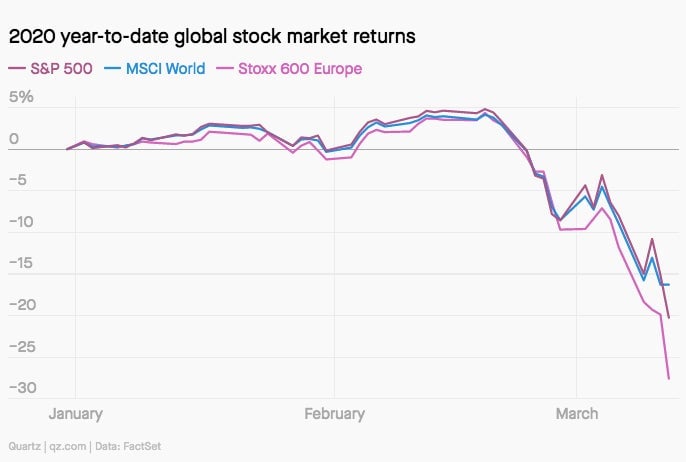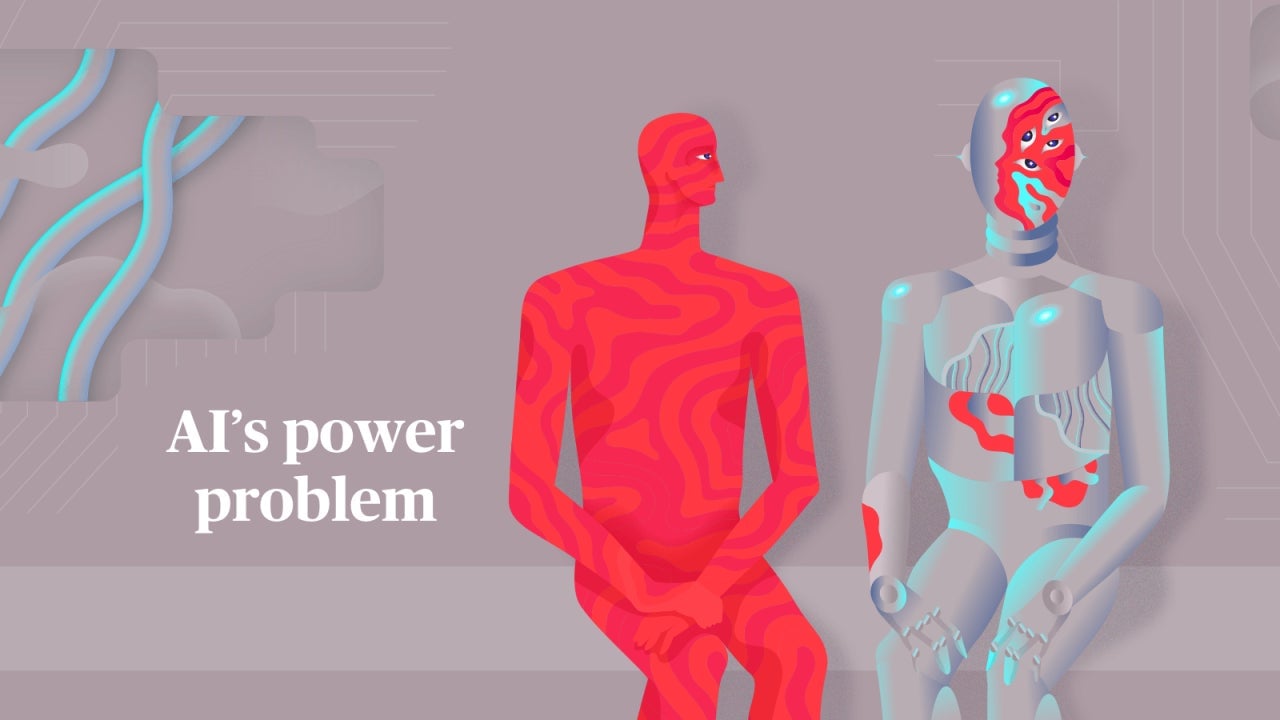Future of Finance: Coronavirus inspires virtual IPOs, surprisingly orderly trading
Welcome back! If you’re new, sign up here to receive this free email every week.

Welcome back! If you’re new, sign up here to receive this free email every week.
Hello Quartz readers.
I hope you and your friends, colleagues, and families are doing as well as possible under these circumstances. That goes especially for people who have suffered from Covid-19, and those who can’t work from home, whether that’s because their job doesn’t permit it or because they’re needed to help society cope with infections.
The spread of Covid-19 is changing our future. Some government leaders will end up winners, while others will get blamed for a bungled response and get ousted. Not that long ago there’s seemed to be few clouds in the sky for the global economy, and now the only question is how long the storm will last. Dutch trends forecaster Li Edelkoort suggests the disruption could inspire us to rethink rampant consumerism.
The turmoil is even rippling through some weird things like the corporate IPO. Some Asian companies are marketing their public offerings virtually, instead of the traditional way that involves IRL meetings and investor handshakes. China Bright Culture Group, a Chinese television producer, raised more than $100 million this way, according to Reuters, while Chinese biotech InnoCare Pharma was marketing its deal using video and telephone calls.
Video calls can include more investors than in-person meetings, leveling the playing field so that everyone gets the same information. That’s pretty much how Spotify did its direct listing in 2018. Barry McCarthy, Spotify’s CFO at the time, said in a Goldman Sachs podcast that the streaming-music company was aiming for “radical transparency.” Its roadshow better resembled an investor day:
“Public market companies don’t have roadshows; they have investor days. And they present the entire strategy over three or four hours, the investors get to the see the entire management team. We got to put it up on the web and make it simultaneously available to everybody in the world at the same time; I think we had something like 27,000 streams in that first day when we put it up there. We had educational videos about how the business model worked, and so we used the power of the web to help people engage in the process.”
Stock markets have been roiled by the coronavirus the past few weeks, and they took an even deeper plunge on March 12. But who knows—maybe Covid-19 will make them a little fairer and more efficient.

Good news
A complaint about journalists is that we only report the bad news. This is probably true in a general sort of way. But this week, amid reports about growing health and recession risks, several columnists were at least a little upbeat about the tech that underpins financial markets.
Volatility went ballistic and yet, despite some circuit breakers being triggered, buying and selling on exchanges remained relatively orderly. It was far from obvious that this would be the case, as markets have changed dramatically in the past decade with the rise of passive investing and exchange-traded funds.
At the Wall Street Journal, James Mackintosh pointed out (paywall) that the market plumbing’s “continued functioning is one of the few bright spots in the gloom.” Bloomberg’s Matt Levine wrote two columns about the surprising resilience of junk bond ETFs: “This concludes ‘people are worried about bond market liquidity,’ hopefully forever. I mean, at least the ETF part.”
I brought this up with John Lin, founder of Singapore-based electronic trader Grasshopper. He said he was cautious about liquidity and is still wary of corporate debt. But overall, yeah, things are OK: “In the big derivative markets we trade, you’re right, so far, nothing has melted down yet.” He said the company has no problem with its traders working from home and has already been doing it for a while.
Likewise, Kevin McPartland, head of research for market structure and technology at Stamford, Connecticut-based Greenwich Associates, says “all indications are that the market infrastructure itself has held up quite well.”
“Market data has continued to function despite crazy bursts of data,” he said. “It’s just an unprecedented amount of data that’s being pumped through the system because markets are moving so quickly and volumes are so high. By that measure things have gone amazingly well.”
Naturally, there are still plenty of things to worry about. Corporate defaults, particularly among US oil drillers and other highly indebted companies, are a big risk. The US Treasury market is showing signs of strain, prompting the Federal Reserve to step in to keep the market operating. But overall, many of the world’s big institutional trading platforms have been tested in a big way, and so far they’ve come out alright.
This week’s top stories
1️⃣ Evidence of a coronavirus-induced economic slowdown can be seen from space. Data gathered by satellites in orbit show empty parking lots at factories, while activity at a Tylenol manufacturing plant has jumped.
2️⃣ Kenyan lawmakers are investigating digital credit apps. A member of the National Assembly said the lenders are “a social menace responsible for suicides, divorces, family breakups,” Bloomberg reports.
3️⃣ The New York Stock Exchange may implement a contingency plan and close its iconic trading floor (paywall), though it isn’t yet planning to activate the emergency measure. If that happens and trading goes too well, it could raise questions about why it still has human traders at all.
4️⃣ How will online lenders hold up in a recession? We may find out in a month or two whether their lending algorithms are up to scratch, writes Todd Baker, senior fellow at Columbia University’s Richman Center.
5️⃣ Brokerage app Robinhood suffered a third outage. The company is facing legal fallout from a previous glitch.
The future of finance on Quartz
There are only two confirmed cases of Covid-19 in Nigeria, but the country is already suffering a shortage of dollars as oil prices plunge. US currency is no longer available even on the black market because of excessive demand.
The Bank of England is considering whether to issue a digital pound. Officials published a discussion paper about central bank digital cash, adding to the debate among central bankers around the world.
Building an investment portfolio of stocks and bonds can be easier than making spaghetti bolognese. While they’re not right for everyone, robo-advisers suit many investors just fine.
Elsewhere on Quartz

AI can be prejudiced, just like people. Quartz contributor Helen Edwards reports on how human biases get imported into AI—and how lawmakers and the tech industry are trying to course-correct.
Always be closing
- Airwallex, an Australian cross-border payment company, is looking to raise $200 million, according to Bloomberg.
- NorthOne, a lender for US small businesses and freelancers, got $21 million of investment.
I hope your week has been a profitable one (pick your own metric). Please send tips, news of trading meltdowns, and other ideas to [email protected].